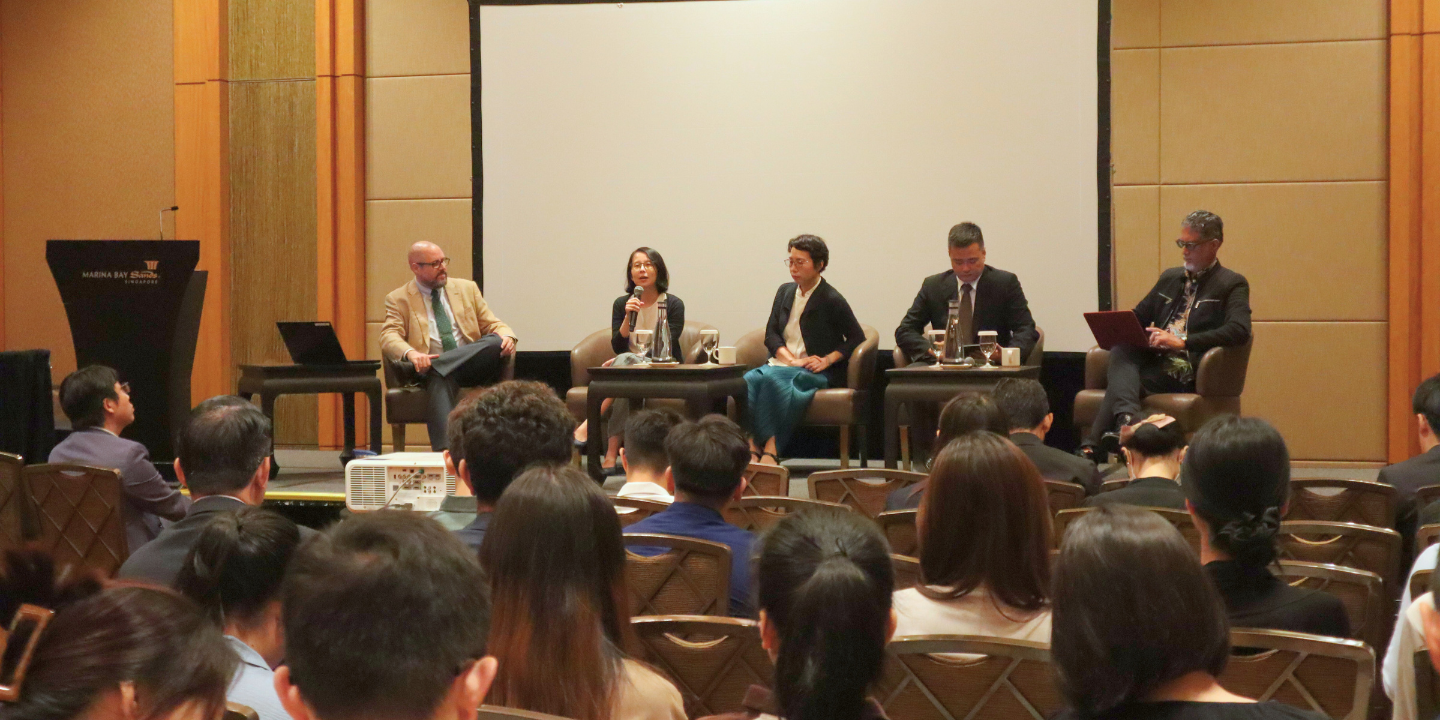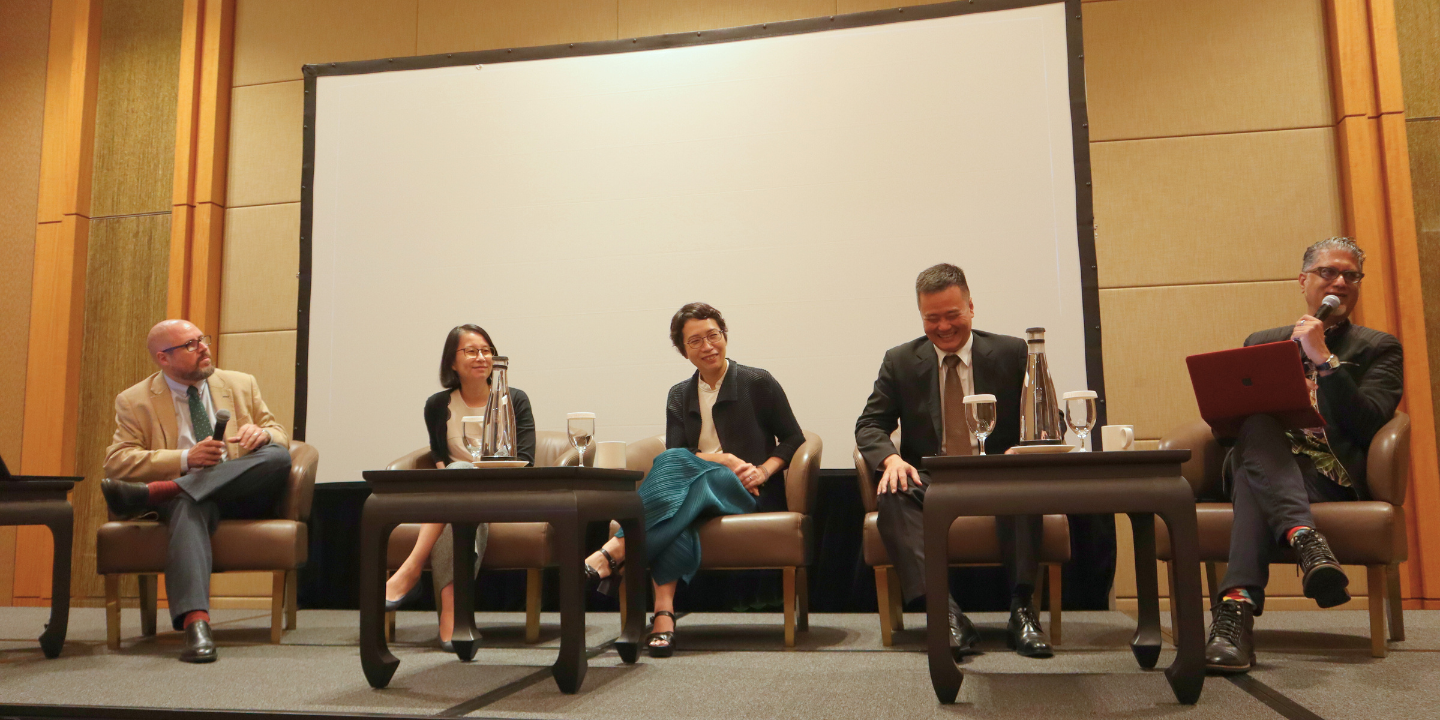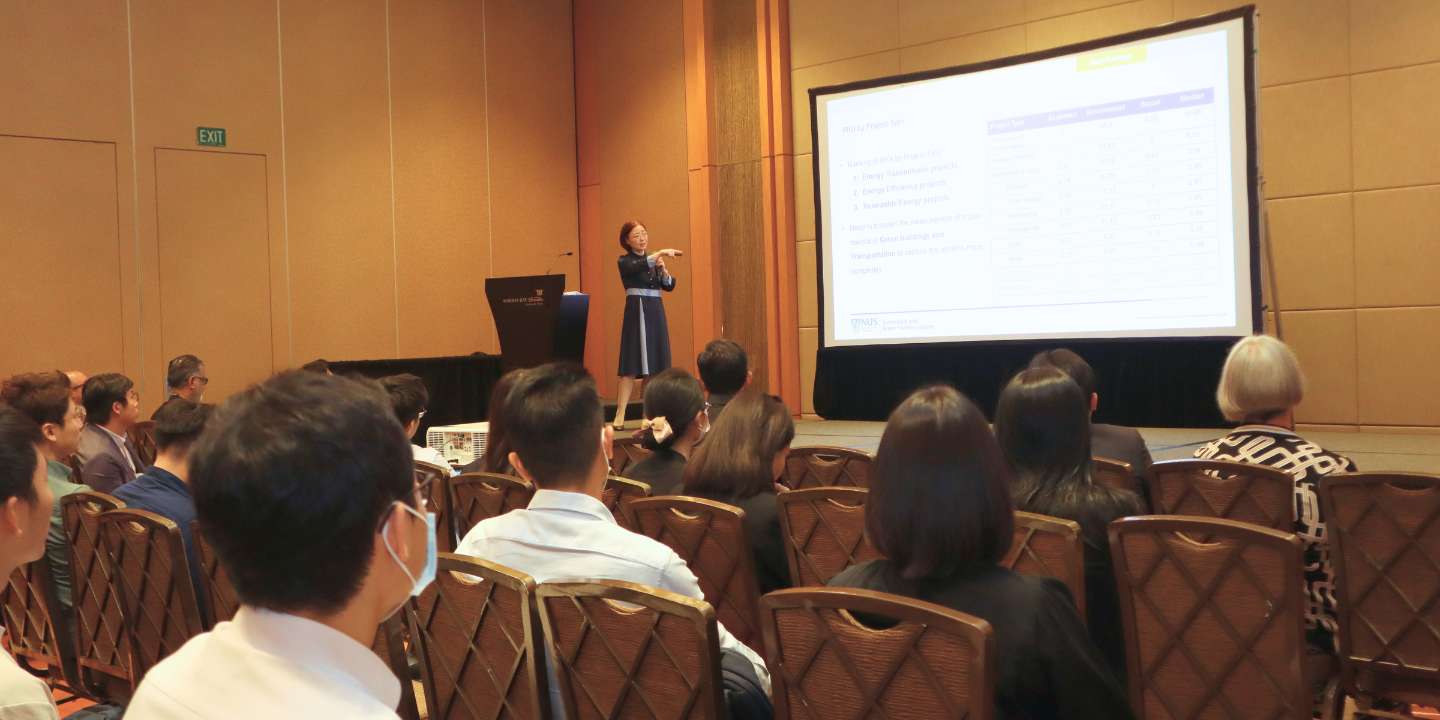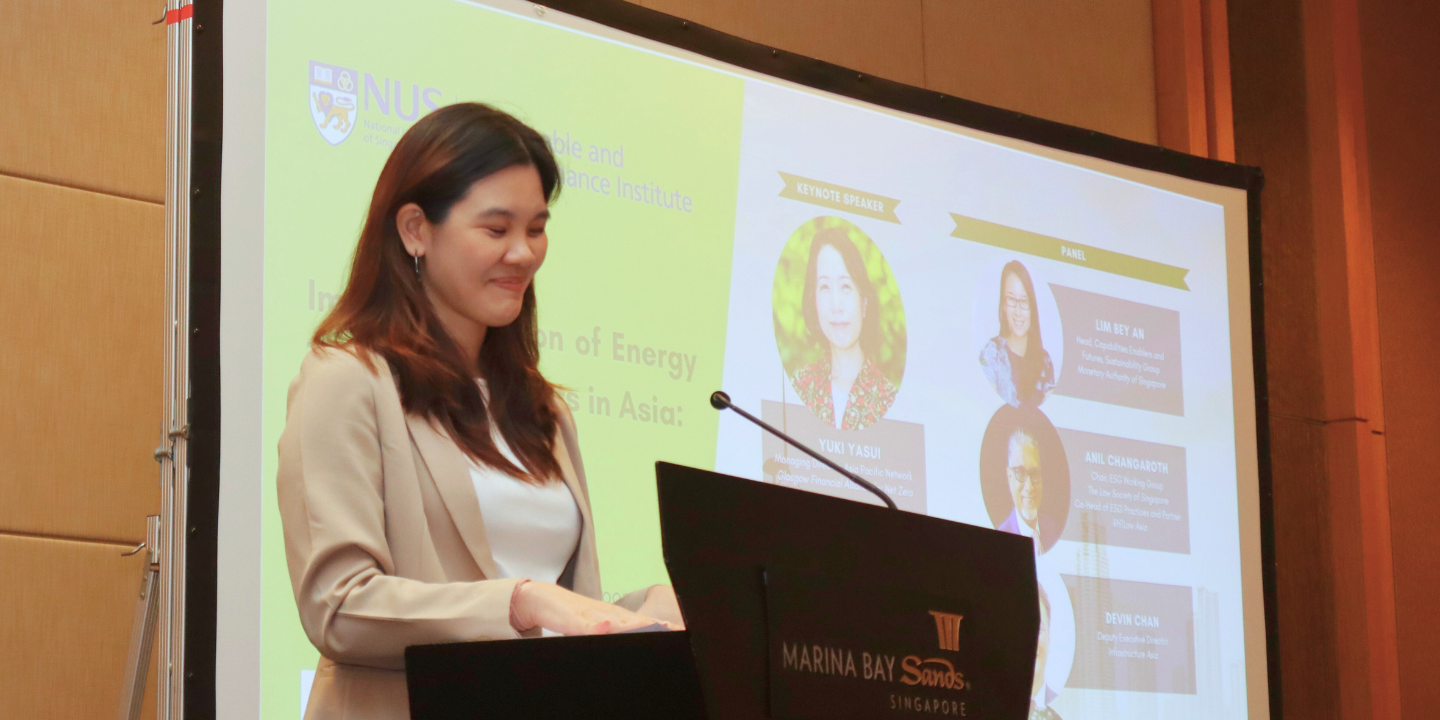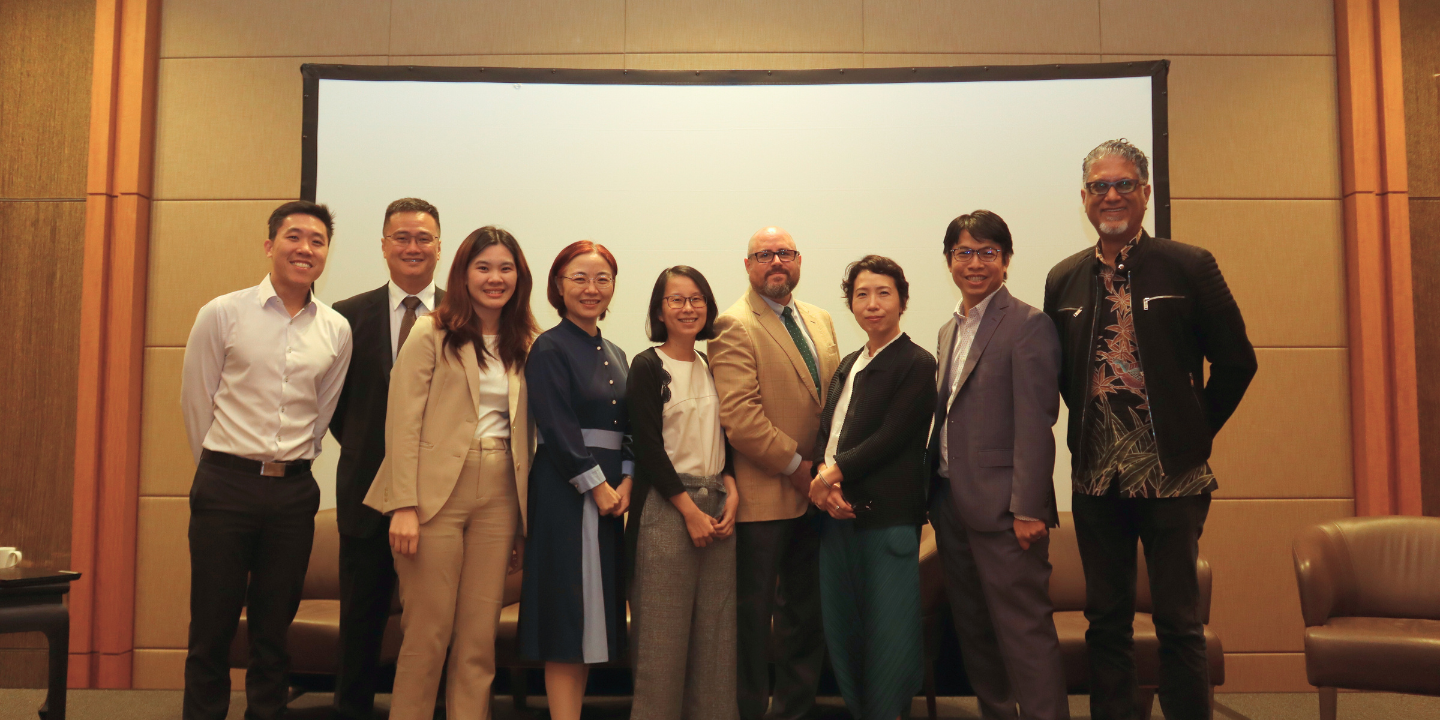
SFGIN launches it’s first Whitepaper on “Impact Valuation of Energy Transition Projects in Asia: 2013-2022”
9 Nov 2023
On 9 November, SGFIN hosted a workshop on the topic of energy transition at the Marina Bay Sands Expo & Conventional Centre. The workshop was attended by many industry partners and experts in the field.
Followed opening remarks from SGFIN Director Assoc Professor Johan Sulaeman, a keynote speech by Ms Yuki Yasui from GFANZ set the scene by describing the landscape as viewed by, and strategies taken by, GFANZ in facilitating the decarbonization transition for the global economy. Specifically, she zoomed into the importance of a managed phaseout (MPO) strategy during her presentation, as core constituent of four key financing strategies taken by GFANZ. The details surrounding this can be found in the paper entitled “Financing the Managed Phaseout of Coal-Fired Power Plants in Asia Pacific”. Yuki pointed out that driving the MPO of coal power generation in the Asia Pacific is critical for decarbonization, but she also recognized that there are many challenges to do so. A three-step process was outlined for financial institutions seeking to approach financing these plants under MPOs, and nine recommendations were given for Financial institutions to consider how to approach such projects/investments in a systematic and credible way.
Associate Professor Zhang Weina, Deputy Director of SGFIN, presented the findings from the SGFIN’s own whitepaper “Impact Valuation of Energy Transition Projects in Asia: 2013-2022”, which is co-authored with SGFIN researchers Vigilia Ang and Desmond Tay. A new framework to systematically value the full range of economic, environmental and social (EES) impacts was implemented in the paper to analyze hundreds of energy transition projects implemented in Asia with the last decade. The team delved into thousands of reported project indicators and harmonized them down to a reasonable number of common metrics, and subsequently monetized them into twenty-two value drivers under three EES pillars using a newly established financial proxy dictionary. Prof Zhang presented the integrated return on investment (IROI) computed for all projects and uncovered several important findings:
-
-
- The distribution of IROI is positively skewed and a long right tail. The median IROI is at US $3.54 for $1 of investment whereas the average IROI is at $11.9.
- Multilateral development banks (MDBs) such as the World Bank (IBRD) and ADB have rich experiences to be shared with private sector in generating positive integrated value especially in terms of additional economic and social values.
- Corporates were able to harness high environmental value from their projects that can be learnt by other interested parties to scale up similar investments.
- Based on the cost of capital, there seemed to be ample room for blended finance to offer tiered interest rates for public and private sectors in financing more risky investments.
-
The importance of this whitepaper paper lies in the easier access for future project developers to refer to a consistent valuation framework. Such an improvement makes it possible for financial institutions and corporates to finance and invest in similar energy transition projects at a more efficient pace.
Senior Research Fellow Dr. David Broadstock from SGFIN hosted a panel discussion including keynote speaker Yuki Yasui, as well as Bey An Lim from MAS, Devin Chan from Infrastructure Asia and Anil Changaroth from RHT Law Asia. A wide range of topics were discussed spanning the role of law and regulation in facilitating project implementation, the importance of supporting a managed phase out of coal, and the roles that central banks, global networks and other actors need to play in achieving that. Panellists also shared their views on the timing of transition project investments and the retirement of assets, the role of carbon/emissions pricing, and the complex problem of classifying transition investments.
Specifically, Bey An shared the MAS’ recent policies on transition finance and the series of consulting papers on MAS guidelines for financial institutions including banks, insurers and asset managers on transition planning for a net zero economy in recent months. She also emphasized that integrity of carbon credits is an important consideration for decarbonization. Devin shared his insights about blended finance and suggested that improvement of energy efficiency can be one of the lower hanging fruits for existing infrastructures. He also brought up the investment in grid capacity in many developing countries is extremely essential and underserved. Anil brought in his perspective as a lawyer and emphasized that in the actual implementation of the transition plans, corporates should try to avoid tedious legal procedures as much as possible to reach amicable middle ground to settle the legal issues arising from the changed environmental policies and ownership conflicts.
The half-day workshop was filled with deep knowledge sharing, intriguing discussion, and pleasant networking opportunities. We are grateful for all of those who attended and contributed to the lively session!
